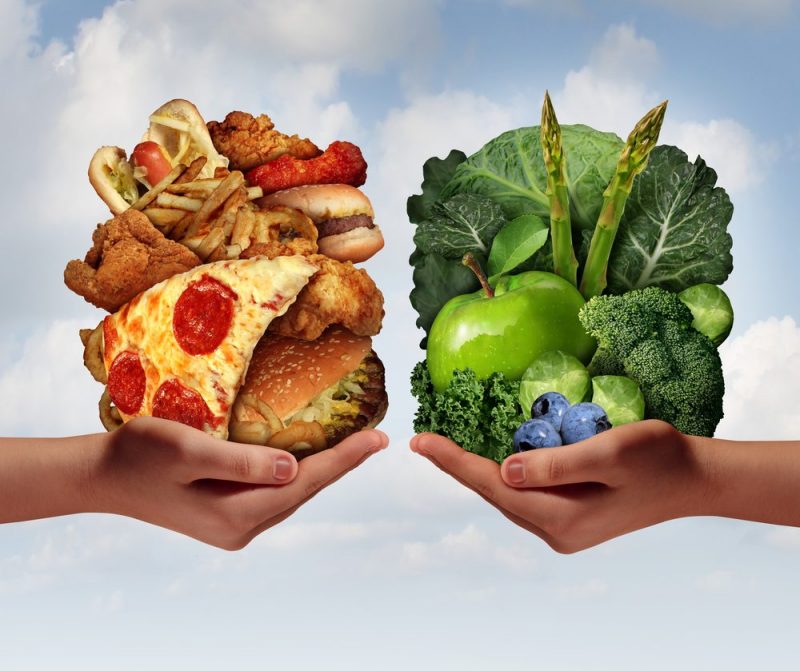
There are many types and varieties of dietary fats when you eat foods. Many are harmless but some might be dangerous. You may also gain weight from them. If you eat too much, you may have trouble losing weight. You must reduce your intake of fat to avoid this. How do you do this? First, identify the types and amounts of fat in your diet. They can be classified as monounsaturated, trans and saturated.
Knowing the difference between saturated fats and unsaturated oils is crucial to understanding how to eat healthy, fat-free fats. Saturated oils are solid at room temperature and can be found in animal products, such as red meat and full-fat dairy products. Coconut oil and Palm oil are also good sources of saturated oils. Monounsaturated or polyunsaturated fatty acids are good for you, and can be found in olive oils and vegetable oil.

There are many types of dietary fats. Monounsaturated oils are good for you and unhealthy for you. Saturated fats are the worst kind of fat, so you should limit them if you're looking to lose weight. Saturated and trans fats can have a negative effect on your health. You should aim to keep your dietary fat intake between five and ten grams per day.
Although moderate amounts of saturated fat are healthy for your body it's best that you stick to a lower than ideal level. Saturated oils can lead to weight gain, as well as increasing your chances of developing cancer or diabetes. Saturated fats can cause weight gain and increase your risk of developing cancer. It's therefore important to limit your intake. By following these tips, you can make your diet more nutritious while reducing your overall calorie intake. The following foods are the most beneficial to your health.
The most dangerous fats are saturated fats. Saturated oils can lead to heart disease. But, they should be about five to six percentage of your daily calories. You can include saturated fats in your diet, but it is important to keep this in mind. A lot of fats are a combination of fatty acids. It is best to include them in your diet. If you only eat one type, you can substitute it with unsaturated.

Saturated Fats are the worst. These fats can be very harmful for your health. You should reduce your intake of saturated fats. Saturated fats can cause weight gain. Also, it is important to limit your sodium intake. The American Heart Association recommends that saturated fats are limited. If you're looking for the best options for your diet, you should try to eat more vegetables, fruits, and whole-grain foods.
There are two kinds of dietary fats. These dietary fats can come from plant-based and animal foods. Omega-3 fats are good to the heart. Saturated fats are bad for your heart. You also get a number of health benefits from them. You can benefit from the omega-3 oils in fish and poultry. They are vital for the health and well-being of your heart. Your heart will thank it if you eat foods high in omega-3 oils.
FAQ
What does butter have to do with men?
Butter is one source of saturated fats. This type is beneficial for healthy skin and hair as well as stronger bones.
Butter also contains vitamin K, which prevents bleeding from cuts and bruises. Vitamin K works with vitamin A to prevent bleeding.
Butter is also rich with minerals, such as calcium and phosphorous. These minerals promote stronger bones, teeth, and teeth.
Butter has its drawbacks. Butter is high in cholesterol. There are studies that show excess cholesterol may increase the likelihood of developing cardiovascular diseases.
Butter is high in saturatedfat, which contributes both to obesity, and raises cholesterol.
However, if you must have butter, try spreading it on bread rather than dipping it into soup or salad. Bread absorbs less oil than pasta and potatoes.
Do I have to exercise every single day?
No! You should do at least 30 mins of moderate-intensity activity 5 days per week. This could be walking fast enough so you feel slightly out breath or cycling hard enough to sweat.
Egg is good for you?
The egg is rich in all nutrients needed by the human body. It aids in maintaining strong bones, healthy hearts, and lungs, as it also maintains stable blood pressure.
Eggs are a good source of protein and vitamins A, B12, D, E K, calcium, phosphorus iron, zinc copper, magnesium selenium and even riboflavin.
The egg yolk has high cholesterol. However, the egg yolk is low in cholesterol. Eggs are low in saturated fat compared to other foods.
In addition, they are low in sodium and calories. They are very versatile and can be cooked any way you'd like. They can be poached or scrambled, baked, hard-boiled, or fried.
They are very healthy and simple to make.
You should eat at least two whole eggs per day. You can add eggs to your diet if you don't like eating eggs.
Essential nutrients are provided by eggs. Add eggs to your diet today.
Statistics
- An estimated calorie range for moderately active adult males falls between 2,200 to 2,800 calories per day, depending on age. (eatright.org)
- By John Thompson Take a whopping 38% off a set of PowerBlock Pros. (menshealth.com)
- Get free shipping and 25% off today. (healthline.com)
- The PRS enabled risk stratification for overall prostate cancer and lethal disease with a four-fold difference between men in the highest and lowest quartiles (HR, 4.32; 95% confidence interval [CI], 3.16-5.89). (pubmed.ncbi.nlm.nih.gov)
- Cardmembers earn 5% Back at Amazon.com with a Prime Credit Card. (amazon.com)
External Links
How To
What nutrients is a man supposed to consume daily?
Men require daily nutrition for healthy growth and development. Vitamins, minerals, vitamins, nutrients, carbohydrates, fats and fiber are all essential for the body.
Specific nutrients are also required by the male body at different times during the day. To give you an example, the body uses energy it receives from food to make hormones and antibodies. When you get up, protein is used to repair and build muscle.
Your body will burn fat at night and store the extra energy as a form of glycogen. Your body has less energy but still requires enough nutrients during this time. You can have a snack at night if you feel hungry.
When you work out, you need adequate levels of carbs and protein to fuel your muscles. You may feel sore muscles if you exercise hard.
You must ingest carbs and protein within two hours of training to prevent this. Your body will use stored glycogen to produce glucose for energy.
After your workouts, you should eat protein immediately. This prevents muscle tissue from being broken down while you are sleeping.
Your body makes lactic acid when you are doing intense physical activities. Lactic acid builds up in the bloodstream and causes fatigue. Avoid this by eating foods rich in carbohydrates such as fruits or vegetables.
Carbohydrates provide energy for your body to recover after strenuous exercise.
Your diet may include lean meats like fish, eggs, milk cheese, yogurt or beans as well as lean proteins such as fish, eggs, egg yolks, cheese, yogurt, bean, peanuts and seeds.
All of these foods have high-quality protein. Protein promotes muscle growth, and helps repair damaged tissues. It also provides the amino acids your body needs to produce sex hormones and testosterone.
You also need enough dietary fats to maintain good skin, hair, nails, and joints. Healthy men need between 20% - 35% of the total caloric intake to be fat.
Fat helps keep your heart strong and protects against cancer. It is essential for proper brain function.
You can get most of the fat you need from vegetable oils like olive oil, sunflower oil, corn oil, soybean oil, peanut oil, and safflower oil.
These oils are high in monounsaturated fatty acids (MUFAs). MUFAs reduce cholesterol and inflammation. They protect your cells against free radical damage.
Saturated oils (SFAs), found primarily in animal products such meats, dairy products and butter, are known to raise LDL ("bad") cholesterol. SFAs can increase LDL ("bad") cholesterol as well as triglycerides. They are also good for weight loss and belly fat.
Polyunsaturated fats (PUFAs) are found in plant-based sources like vegetable oils, nuts, seeds, and grains. PUFAs help improve cardiovascular function, and lower inflammation. They also help control blood sugar and cholesterol.
Men with low HDL ("good") cholesterol often suffer from erectile dysfunction. A high intake of saturated fats leads to higher levels of bad cholesterol.
Because of the high levels of nitrates in red meat and pork, men with prostate problems may eat more of them. When heated, nitrates are converted to nitrosamines. These compounds cause cancer.
Nitrites and other harmful chemicals are common in processed meats. They should be avoided.
The American Heart Association recommends that you limit your intake of red meat to 2 per week. Instead, choose poultry or fish, beans, tofu and whole grain bread.